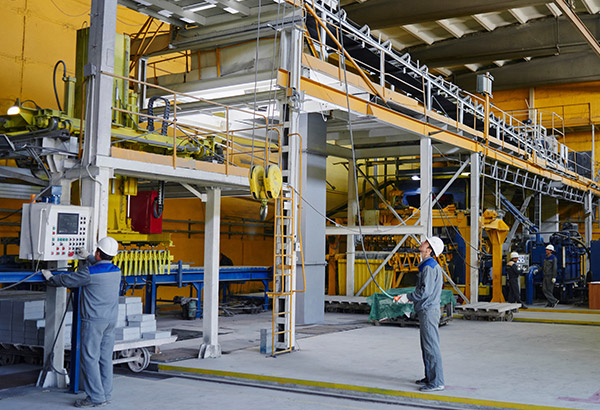Course Details
Your Growth, Our Mission

Course Description
The Training Course Will Highlight ?
The objective of this training program of 5 days duration is to impart Training on Trouble Shooting Chemical Plant Problems related to the petroleum / petrochemical / fertilizer and power generation plants. The training covers the basics of common chemical plant equipment such as Pumps, Compressors, Turbines, Heat exchangers, coolers, Distillation columns, static vessels, pipe lines, motors etc and troubleshooting various problems associated with them.
Training Objective
The objective of this training program of 5 days duration is to impart Training on Trouble Shooting Chemical Plant Problems related to the petroleum / petrochemical / fertilizer and power generation plants. The training covers the basics of common chemical plant equipment such as Pumps, Compressors, Turbines, Heat exchangers, coolers, Distillation columns, static vessels, pipe lines, motors etc and troubleshooting various problems associated with them.
Target Audience
This training is designed for engineers and operations personnel of process plants, refineries (Oil and Gas) and power plants, involved in operation, maintenance and performance monitoring of Operation.
- Process engineers,
- Plant managers,
- Team leaders,
- Section heads,
- Plant supervisors and
- Technical staffs (Operators and Technicians).
Training Methods
This interactive training course includes the following training methodologies as a percentage of the total tuition hours:
- 30% Lectures
- 30% Workshops & Work Presentations
- 20% Case Studies & Practical Exercises
- 20% Videos, Software & General Discussions
The course instructor may modify the above training methodology before or during the course for technical reasons with no prior notice to participants.
Daily Agenda
Concepts
- The nature of problems
- Context – Asset based or Business Process based
- Structured approaches – 6 Big Losses, 7 Wastes
- Techniques introduction
- Tools introduction
Tools & Techniques – Practical Experience
- Problem Analysis
- Practical Use of Tools and Techniques
- Case Studies
- Project selection methods
- Tools & Techniques – selecting the right one
People Issues
- Working practices – empowerment or impairment?
- Group dynamics
- Individual motivators
- Developing Troubleshooting and Problem Solving skills
- Managing change
Chemical Plant Equipment Trouble Shooting
Fractionators Operation and Trouble Shooting
- Principles of Distillation (Fractionation)
- Reflux
- Reboiling
- Fractionators Operation and Trouble Shooting
Heat Exchanges Operation and Trouble Shooting
- Shell and Tube Exchangers
- Double pipe Exchangers
- Indirect Heaters
- Air Cooled Exchangers
- Heat Exchanger Operation and Trouble Shooting
Fired Heaters Operation and Trouble Shooting
- Performance Monitoring
- Fired Heater Operation and Trouble Shooting
Pumps Operation and Trouble Shooting
- Basic Pump Hydraulics
- Calculating Total Head
- Horsepower Calculations
- Net Positive Suction Head (NPSH)
- Pump Performance Curves
- System Performance
- Operation, Control and Trouble Shooting
Compressors Operation and Trouble Shooting
- The Theory of Compression
- Centrifugal Compressors Operation, Control and Trouble Shooting
- Reciprocating Compressors Operation, Control and Trouble Shooting
- Operation, Control and Trouble Shooting
Utilities Systems Operation and Trouble Shooting
Water Treatment Systems
- Introduction to Water Treatment
- Suspended Solids
- Dissolved Solids
- Dissolved Gases
- Industrial Water Treatment
- Primary Water Treatment
- Secondary Water Treatment
- Potable Water Purification
- Disinfections of Water
- Sterilization of Water by (Chlorine, Ozone, Chloramines)
Waste Water Systems
- Main Sources of Pollution
- At the Production
- During Transportation
- During Refining
- De – Oiling of Water
- Purpose of De – Oiling
- API Interceptor
- Parallel Plate Interceptor (PPI) and Corrugated Plate Interceptor (CPI)
- Flotation Units
- Flocculation Units
Fuel Systems
- Typical Fuel Gas System
- Typical Problems
- Pressure Variation
- Liquid in the Gas
- Change in Fuel Gas Composition
Air Systems
- Instrument Air
- Typical Instrument Air Supply Systems
- Instrument Air Distribution Systems Operation and Trouble Shooting
- Utility Air
- Typical Utility Air Supply Systems
- Utility Air Distribution Systems Operation and Trouble Shooting
Process Shutdowns (PSD) and Emergency Shutdown (ESD)
Normal Shutdown Procedures
Process Emergency Shutdown
- Process Failures
- Utility failure
Accreditation
Quick Enquiry
Request Info
Related Courses
Your Growth, Our Mission

